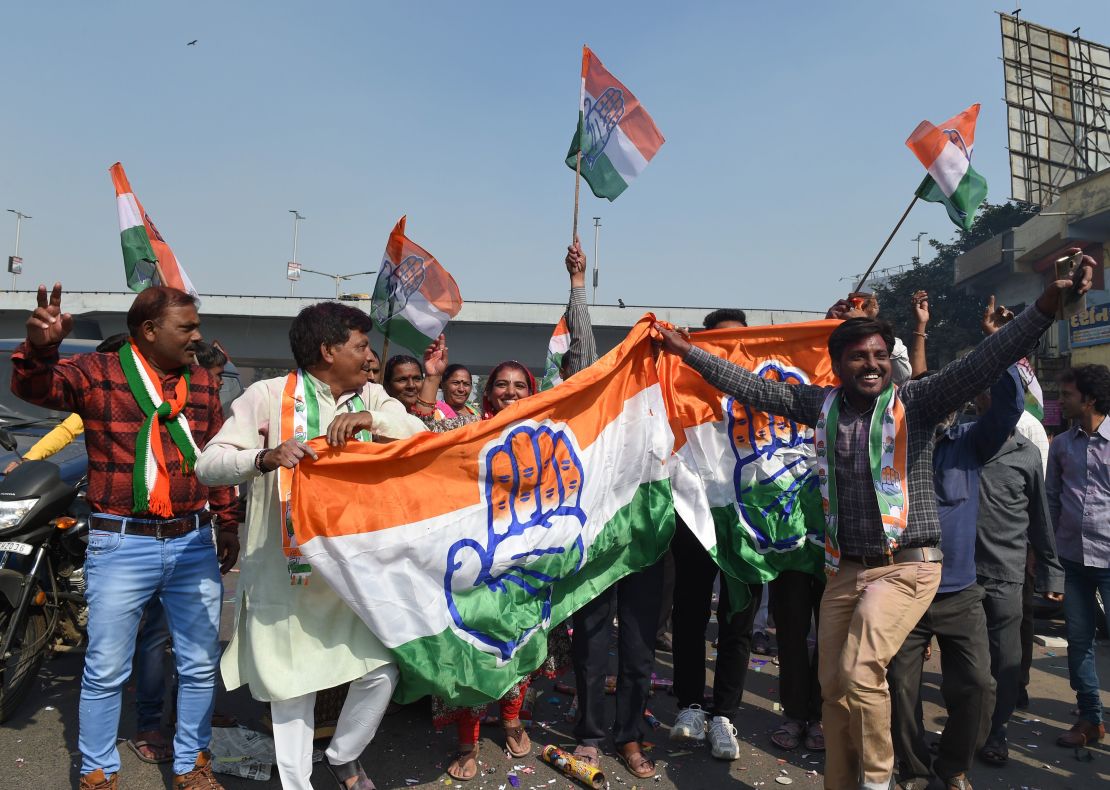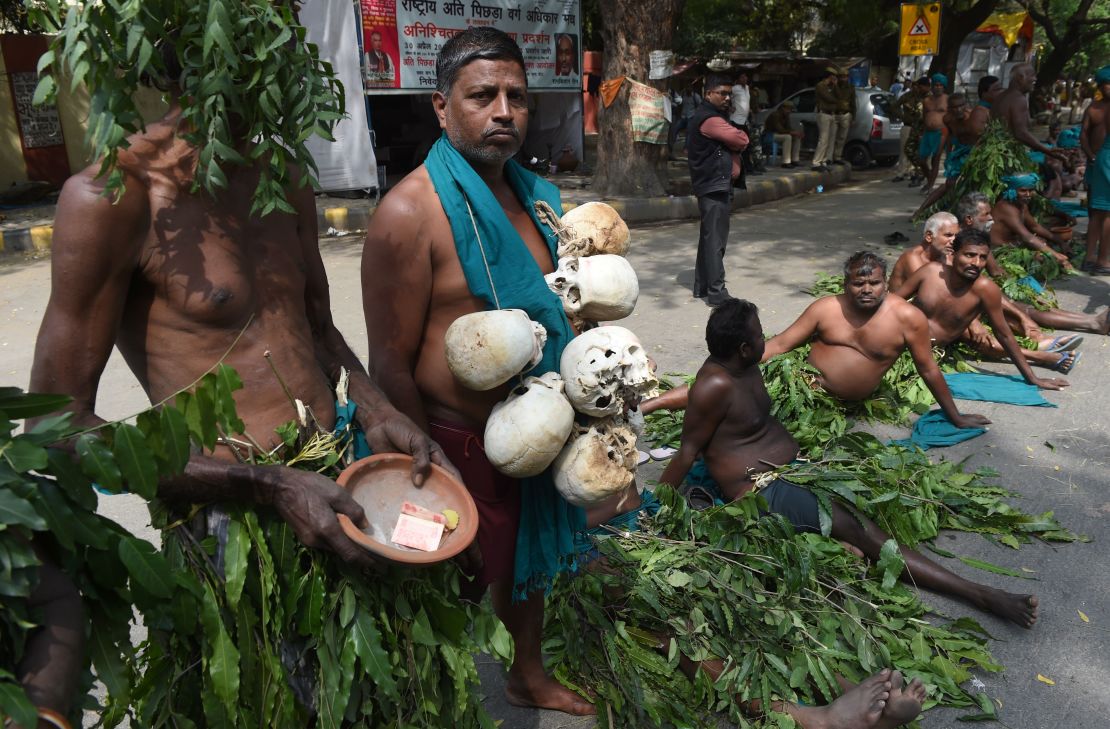Ahead of India’s general election next year, Prime Minister Narendra Modi is facing an unexpected image problem: he’s starting to look weak.
It’s a dramatic shift in the way he’s been perceived ever since a history-making general election victory in 2014. For years, political observers in New Delhi spoke with awe of the “hawa,” or political wind, that lifted Modi and his Hindu nationalist Bharatiya Janata Party (BJP) to power.
Each subsequent triumph – such as the BJP’s 2017 election victory in Uttar Pradesh, India’s largest state, and its successes in the country’s northeast – was seen as further proof of the potency of the Modi “hawa.”
The Prime Minister, his party’s star campaigner at all levels, was seen as unbeatable, riding the political wind to transform the BJP into India’s natural party of power after years of struggling to catch up with the Congress Party.
But there are signs the wind is abating. This month the BJP lost a number of key state-level elections, with Congress grabbing clear majorities in Rajasthan and Chhattisgarh and oustingincumbent BJP governments. In a third race, in Madhya Pradesh, Congress fell just short of an outright majority in the state assembly but nevertheless ended a decade and a half of BJP rule.

Winning these states in the 2014 general election – the BJP took a staggering 62 of 65 parliamentary seats up for grabs across the three – helped propel Modi to power, and contributed to his party’s record-breaking 282 seats in the national parliament. Congress, which had ruled India for most of the post-independence era, was reduced to an overall tally of just 44, its worst-ever showing.
For Modi’s critics, this month’s results reveal the limits of his personal charisma as voters react to a continuing jobs crisis as well as other problems.
Modi’s 2014 victory was in part due to his promises to overhaul India’s economy and generate jobs for young people, around 12 million of whom enter the workforce every year.
In recent years, however, the jobs situation has been getting worse, according to researchers at the privately run Azim Premji University in the southern city of Bangalore, who point to increasing unemployment across the country – particularly in the politically important north.
And the jobs issue isn’t the only thing tarnishing the image of Modi and the BJP.
Despite Modi’s attempts to portray himself as a champion of the poor, wages are falling across rural India and creating an increasingly dire situation for the country’s farmers. They have turned out in their thousands to protest, demanding government aid. In the most recent rally farmers from around the country marched on Delhi, some carrying the skulls and photos of those they say have killed themselves in desperation at their poverty.

As the BJP’s popularity has faltered, hardline Hindu nationalists have tried to play up divisive issues that have historically fired up the party’s right-wing base.
This month, thousands rallied in Delhi to demand the government build a temple to the Hindu god Ram in Ayodhya, a town in Uttar Pradesh where a mosque was demolished by right-wing mobs in the early 1990s, sparking nationwide rioting. The demand has long animated Hindu hardliners – and worried Indian liberals, who fear outbursts of sectarian violence. Such fears have been fanned by a spate of high-profile lynchings of minorities in recent years.
Some fear the poor state election results could see Modi and the BJP veer further to the right to try to consolidate their base before the 2019 contest.
Even if they do, however, it’s not clear how much this would help. Surveying this month’s results, The Hindu, a leading Indian newspaper, said that while “it may be tempting to think” that divisive issues could sway voters, the outcome showed that “it is livelihood concerns that really influence” them – something Modi may have far less control over between now and the general election.
One thing is crystal clear – until very recently, Modi and the BJP were seen as shoo-ins in 2019, their victory regarded as inevitable by many experts.
But with Modi suddenly seeming weak, next year’s election looks more and more like being an actual contest.




